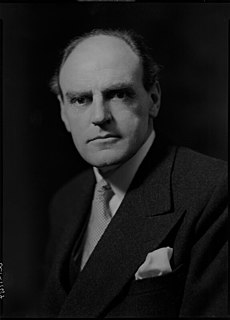A Quote by John Reith, 1st Baron Reith
He who prides himself on giving what he thinks the public wants is often creating a fictitious demand for low standards which he will then satisfy.
Related Quotes
Across a chasm of eighteen hundred years, Jesus Christ makes a demand which is beyond all others difficult to satisfy; He asks for that which a philosopher may often seek in vain at the hands of his friends, or a father of his children, or a bride of her spouse, or a man of his brother. He asks for the human heart; He will have it entirely to Himself. He demands it unconditionally; and forthwith His demand is granted. Wonderful!
Every thinking man, when he thinks, realizes that the teachings of the Bible are so interwoven and intertwined with our whole civic and social life that it would be literally, I do not mean figuratively, but literally impossible for us to figure what the loss would be if these teachings were removed. We would lose all the standards by which we now judge both public and private morals; all the standards toward which we, with more or less resolution, strive to raise ourselves.
The law of giving and receiving is fundamental, and relates just as much to God as it does to us. As we go through the door of giving ourselves to God in worship we find that God comes through that same door and gives Himself to us. God's insistence that we worship Him is not really a demand at all but an offer-an offer to share Himself with us. When God asks us to worship Him, He is asking us to fulfill the deepest longing in Himself, which is His passionate desire to give Himself to us. It is what Martin Luther called "the joyful exchange."
One does not avoid incompetence if one makes an attempt whose likelihood of success is too low. This seems little more than analytic: when the performance is in a domain that imposes standards of risk, attempts may or may not meet such standards. And the relevant competence of agents then includes reliably enough meeting those standards.



































